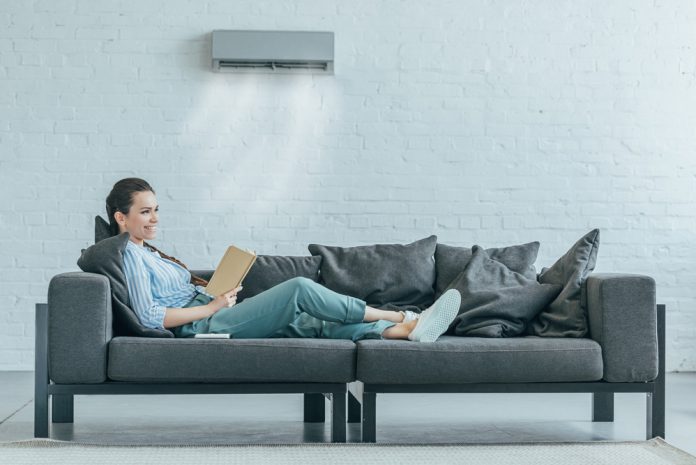Air conditioners play a very vital role in our homes. It would be very challenging to deal with the scorching heat during summer without an air conditioner. The cooling effect of AC includes a continuous cycle of refrigeration and purification of air — in some cases, evaporation. While it will cost you some dollars to buy and install ACs, the price is all worth it.
Remember that there are different types and numerous vendors of AC units in the market. Therefore, choosing the best and one suited for your needs can be quite a challenging task. You need to be very careful because the diverse air conditioning models come with different capabilities. Well, everyone needs air conditioning — the big question is, how do you choose a perfect AC? The answer to this question is found in this ultimate guide to buying an air conditioner for your home.
Things to Consider When Buying an Air Conditioner
1. Capability or Capacity of Cooling
According to US Thermodynamics HVAC, the cooling capacity of your conditioner is something that you must consider to avoid a situation of insufficiency or too much freezing in the house. In this case, do not buy an air conditioner because your friend or relative has a specific AC in their homes. Your air conditioning needs might be different from theirs.
If you can get an air conditioner with an adjustable thermostat, this would be good because you can easily set minimum cooling speeds. The size of your rooms will also determine the type of AC that is good enough for you. For instance, a 1 ton AC is usually sufficient for a small room about 100 square feet. If the room is around 150 to 200 square feet, go for a 1.5 ton AC. Buying the right size of an air conditioner can help you save on energy because you are using the AC optimally.
2. Ability to Save on Energy
Remember that by air conditioning your home, you are adding the cost of electricity bills. It would be very economical if you go for energy-efficient air conditioners. The good thing is that most ACs are star-rated from 1 to 5 stars, making it easy for you to choose. Air conditioners with a high rating such as 5 stars have low power consumption as compared to ACs rated below it.
If you are looking forward to reducing energy bills in the house despite acquiring a reliable AC unit, you must consider energy efficiency when buying your AC. Apart from star-rating, some ACs are known to consume more or less power than others based on their make. For instance, an inverter AC that is rated as 3 stars might consume less energy than a conventional AC that is rated with 5 stars. However, most inverter ACs are quite expensive.
3. The Model of AC
You will find numerous models of AC in the market, making it more confusing to choose one. The model that you select depends on your preferences or the shape and size of your house. The question here is, will you go for window or split air conditioners? Most window ACs are quite cheap and are easy to install while split ones are considered to be quieter. Remember that a window AC is perfect when you plan to cool a specific space.
Other types of air conditioners include portable AC units and ductless coolants. Some air conditioners can be hooked on the wall or be attached to the floor. It is also possible to place your AC outside the house while others are kept in some other discreet places — the choice is all yours.
4. Consider the Price of Acquiring the AC
Budgeting is something that is required in every financial decision that you make. Therefore, when shopping for air conditioning units, remember to pay attention to the price. Different vendors will charge different prices for their AC units. Make sure that the price of each AC is equivalent to the quality and efficiency that comes with it. For instance, an AC with a 5-star rating is expected to cost more than that of a 2-star rating. An inverter AC is also more costly than a regular split model AC.
You should never go for the cheapest brand because, as they, ‘cheap is expensive’ — it might cost you more in the long-run. All you need to consider when it comes to price is whether the air conditioner you are buying is giving value to your money.
5. Consider Maintenance and Cleaning
Just like any other home appliance or electronic device, your AC might break down, requiring some repairs. If you need your AC unit to stay in good shape, and continue serving you efficiently, give it regular service. In this case, consider hiring a reliable HVAC contractor to not only install the unit but to help keep it going. You can save their contacts because you never know when you will need them again, especially after installing your air conditioner for maintenance and cleaning.
When buying your AC, ask the vendor if they offer after-sale services, which include installation and maintenance. If they do, ask them for how long, and whether you are expected to pay extra charges. You can compare this cost and that of hiring an independent HVAC specialist to decide on the best option. Enquire about a warranty too — nobody wants to start repairing their AC right after installation and still bear the cost.
6. Noise Factor
Are you a person who finds AC noise to be a great nuisance in your home? You have the option of buying air conditioning with minimal noise. In this case, a split AC would be the model for you — window ACs tend to be quite noisy. However, even if you decide to go for a split AC, ask your vendor to enlighten you more on the noise aspect. For instance, can you install the AC unit in the house, or will it be more favorable in terms of noise when kept outside? Maybe you do not want to keep you AC outside, or you want to avoid aesthetic issues. Know the facts and then make your decision.
Purchasing an air conditioner can be somewhat daunting. However, with the right information, you have the power to get the best unit to cool your house without hitches.
Find a Home-Based Business to Start-Up >>> Hundreds of Business Listings.
















































